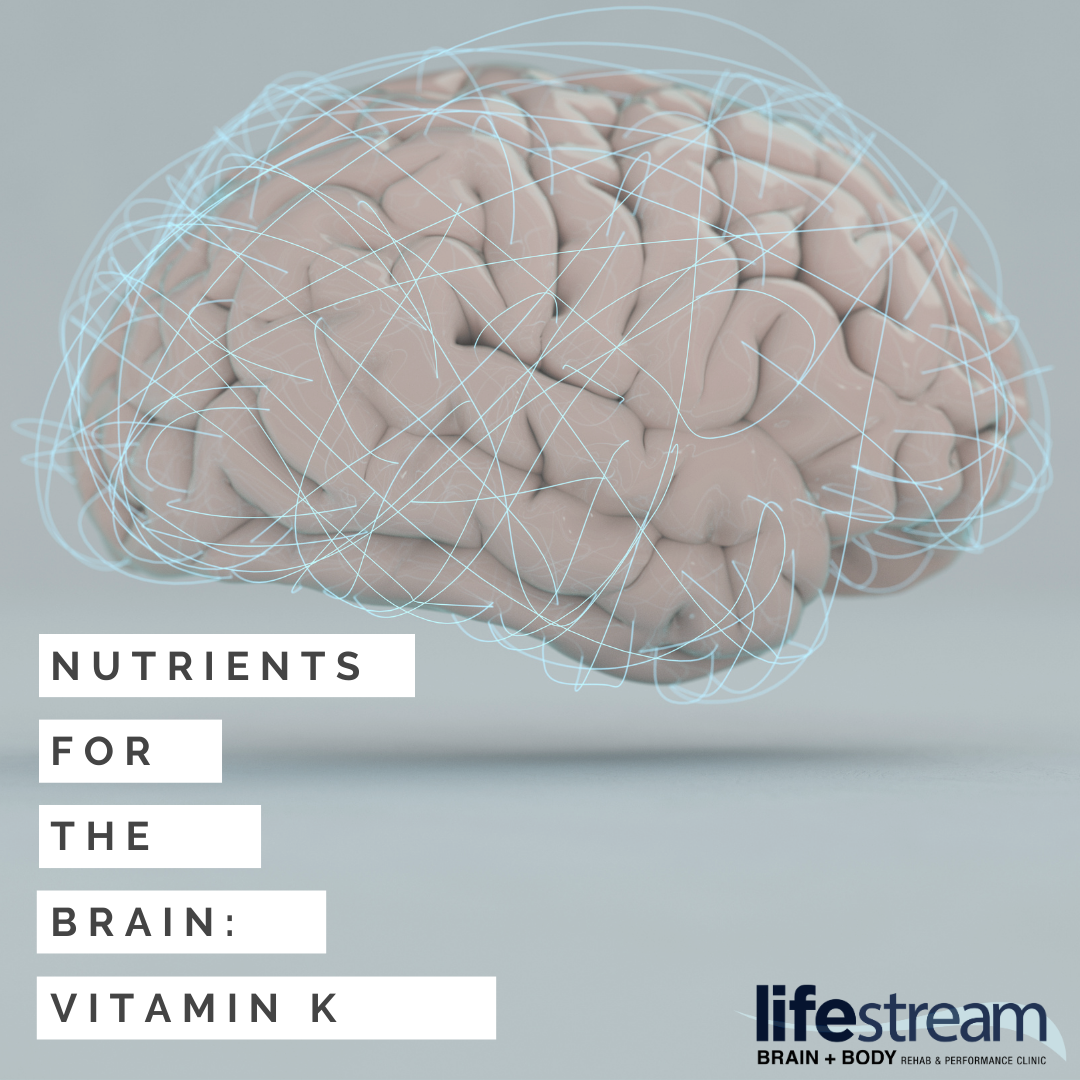Nutrients for the Brain: Vitamin K
Welcome to the last installment of our series on brain healthy nutrients! This week we are going to talk about Vitamin K.
Not to be confused with potassium, whose symbol is K. Vitamin K is a fat-soluble vitamin meaning that it can become toxic in the body because it isn’t as readily excreted. It is most well known for its role in blood clotting, which is a very important process. However, more research has been done in the last decade or so about its role in brain health. In fact, there seems to be a direct correlation between vitamin K and cognitive performance and decline.
This important vitamin is involved in the metabolism of neurons in the brain, the development and survival of the nervous system, and the synthesis of specific lipids that are a part of cell membranes in brain cells. It also has shown to be anti-inflammatory and to protect against free radical damage in the brain (from oxidation).
Here are the mechanisms by which vitamin K accomplishes these activities:
– Vitamin-K dependent proteins in the brain which prevent pre-mature brain cell death, promote the protection of neurons while nerves signals are traveling, and participate in the nerve cell growth (all of which are protective effects).
– Lipids that are a major component of cell membranes in the brain which are important structurally as well as their role in generating new cells. Alterations in these lipids are showing links to the development of neurodegenerative diseases such as Alzheimer’s Disease and Parkinson’s Disease.
– Reducing glutathione depletion which is a powerful antioxidant in the body that protects against cell damage.
Okay, so vitamin K is important for cognitive function and performance and to prevent decline. How can I get more of it in my diet?
Here are the main sources of vitamin K in the diet:
– Leafy greens: spinach, swiss chard, collards, kale
– Green vegetables: broccoli
– Others: soybeans, edamame, pumpkin, fortified foods
Important Considerations:
– Plant sources of vitamin K are not very available because they are bound to compounds and aren’t absorbed well in our digestive tracts (like we discussed in the blog post about folate).
– For individuals who are taking a blood thinner, eating consistent amounts of vitamin K daily is important.
– The bacteria in our gut also product some vitamin K, although not much is known about how much.
In summary, vitamin K is a powerful player in brain health; however, make sure you talk with your doctor before trying any new supplements.
Sources:
https://www.ncbi.nlm.nih.gov/pmc/articles/PMC6436180/
https://pubmed.ncbi.nlm.nih.gov/22419547/
https://www.ncbi.nlm.nih.gov/pmc/articles/PMC3648721/
https://www.nutri-facts.org/en_US/news/articles/vitamin-k-may-improve-memory-performance-in-the-elderly.html
https://ods.od.nih.gov/factsheets/VitaminK-HealthProfessional/
https://advances.nutrition.org/article/S2161-8313(22)00985-1/pdf

